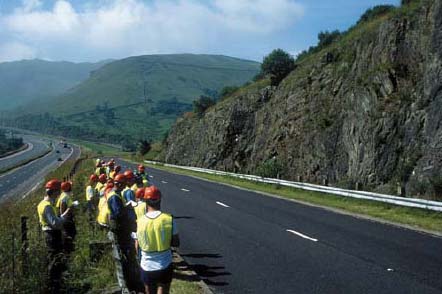9 Field-work health and safety, UK and abroad
9.1 Field-work risk assessment
Field-work covers a wide spectrum of outdoor activities and takes place in almost every environment present both in the UK and abroad. It is acknowledged that there is an element of risk in much of this work. The Health and Safety at Work Act recognises that risk is inherent in some occupations and seeks to ensure that systems of work are in place to reduce risks to an acceptable level.
There has been increasing concern about the safety of field trips in the light of recent court cases involving fatalities of schoolchildren on organised field trips. What has been emphasised is the need for well-written risk assessments. Indeed, one education authority was prosecuted for not having produced written risk assessments.
For field-work, the Boy Scout motto ‘Be prepared’ is important, as one of the major hazards is inclement or changeable weather. One may start up a mountain in bright sunshine, but the weather can quickly change to a blizzard; this can result in a dangerous situation because of loss of visibility and cold, which may lead to hypothermia.

In arid areas there can be a problem with flash floods. People have decided to camp in a dried-up river valley which suddenly becomes a torrent. At the other extreme, when working in summer or hot, dry regions, there is the danger of sunstroke, sunburn and dehydration. Plan your work to avoid the hottest time of the day, put suntan lotion on, wear a hat and take plenty of water with you.
If you are working in any area that is tidal then you must be aware of the tide times to avoid being cut off or drowned.
When planning field trips it is important to be aware of the weather, in addition to weather forecasts. Information about potential local flooding can be obtained from the Environment Agency.
It is important to be able to communicate in an emergency, so a mobile phone or a VHF radio is important. Check the reception, however, because it can vary in remote areas. Alternatively, for very remote areas, a satellite phone can be used.
